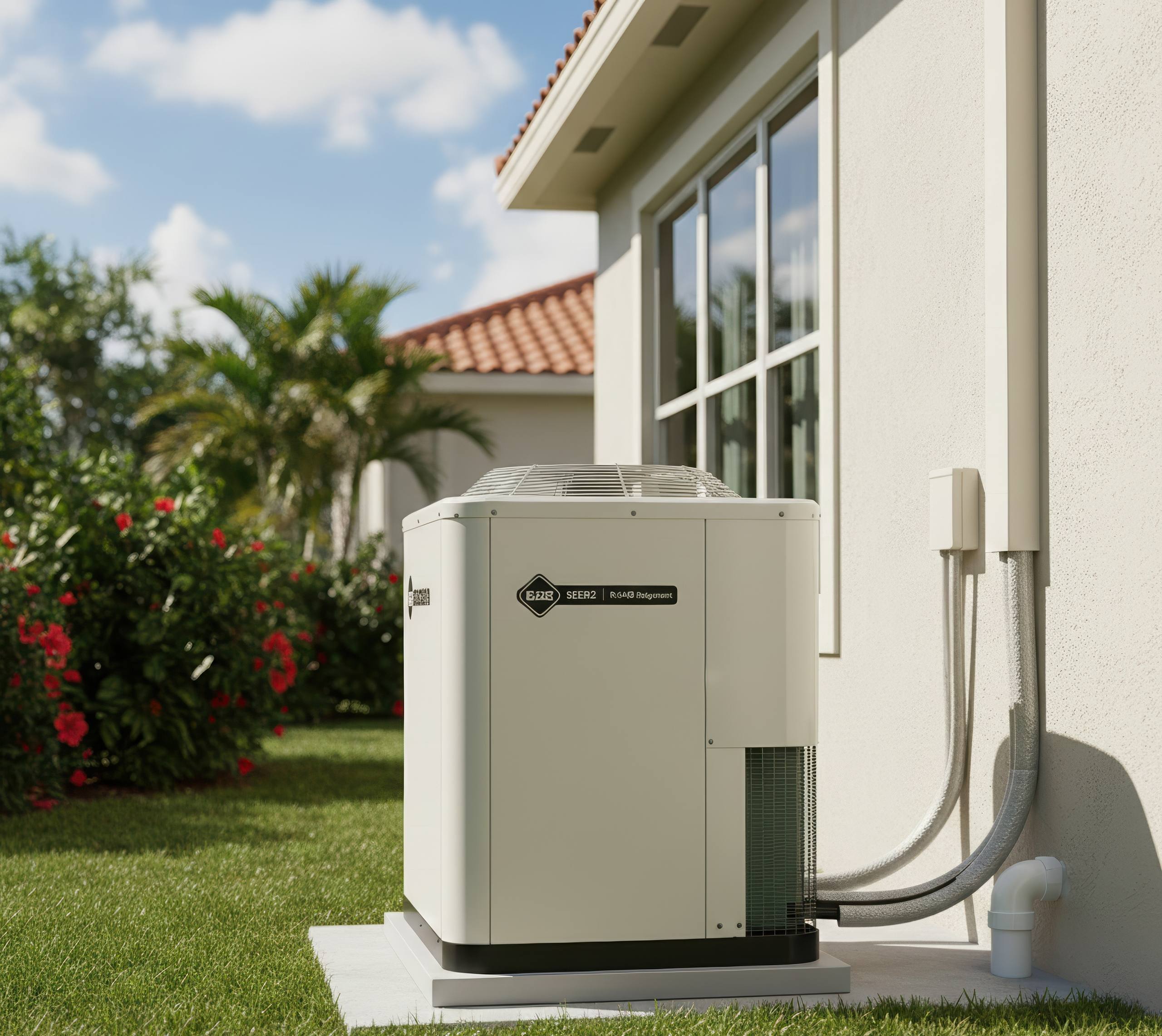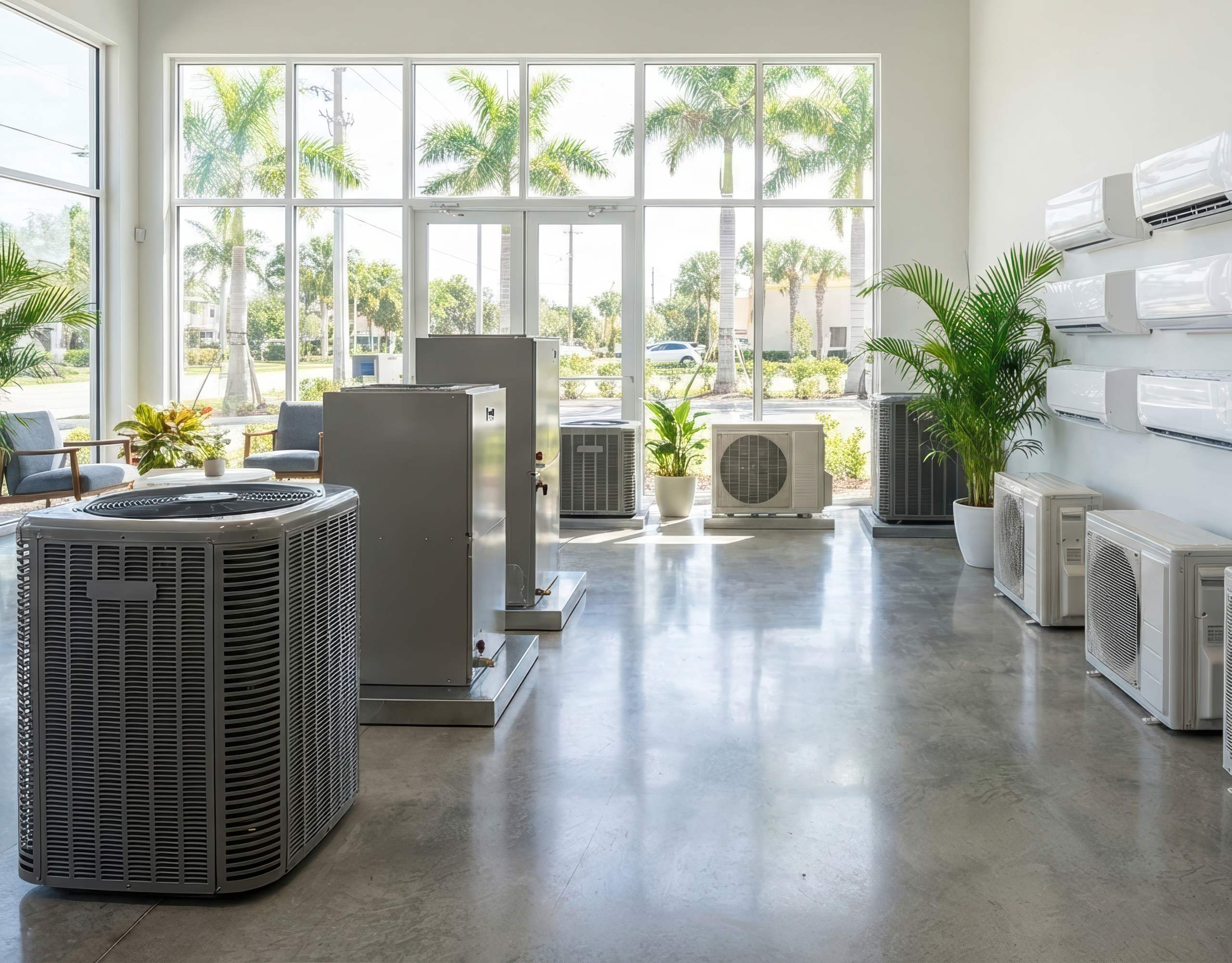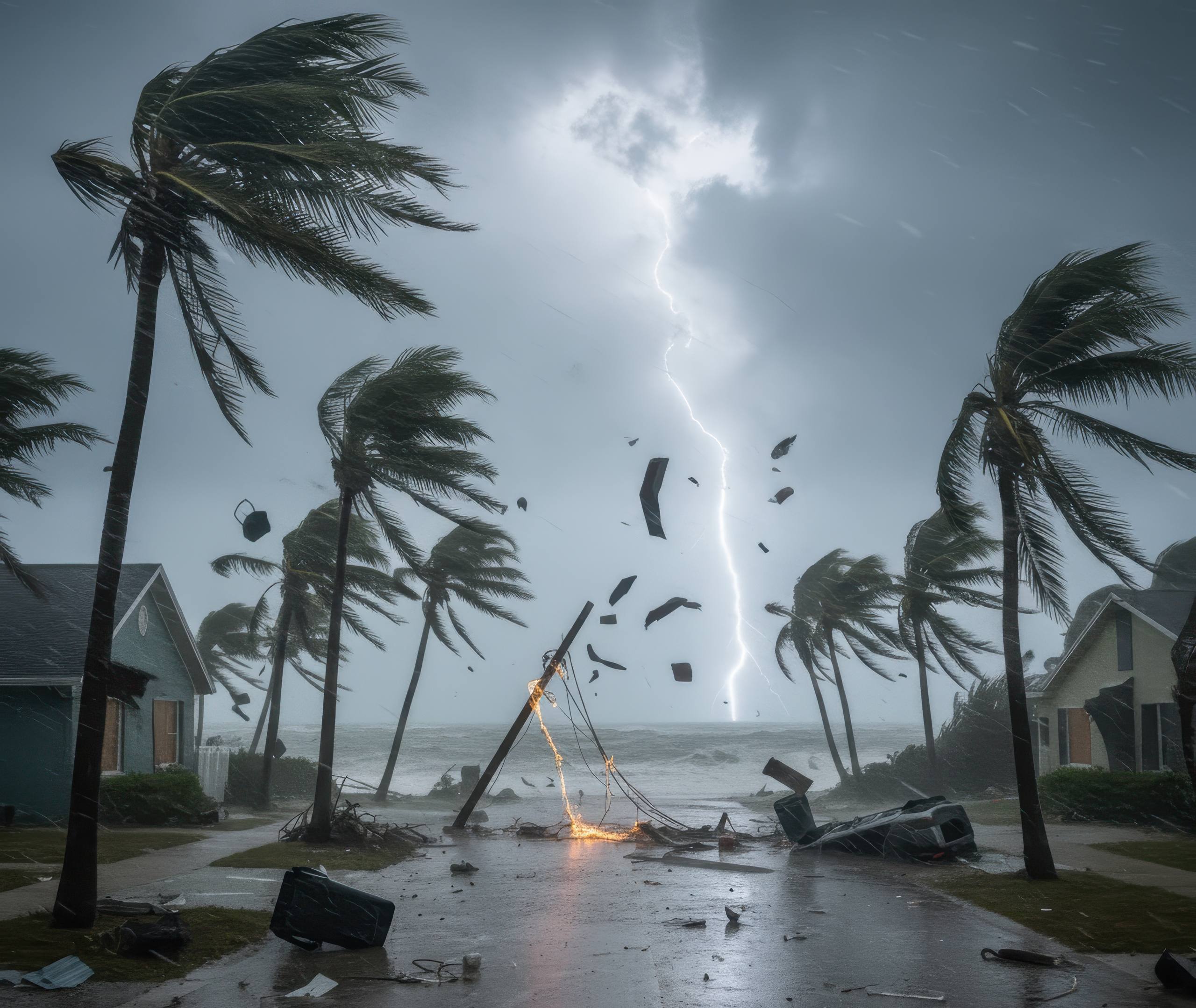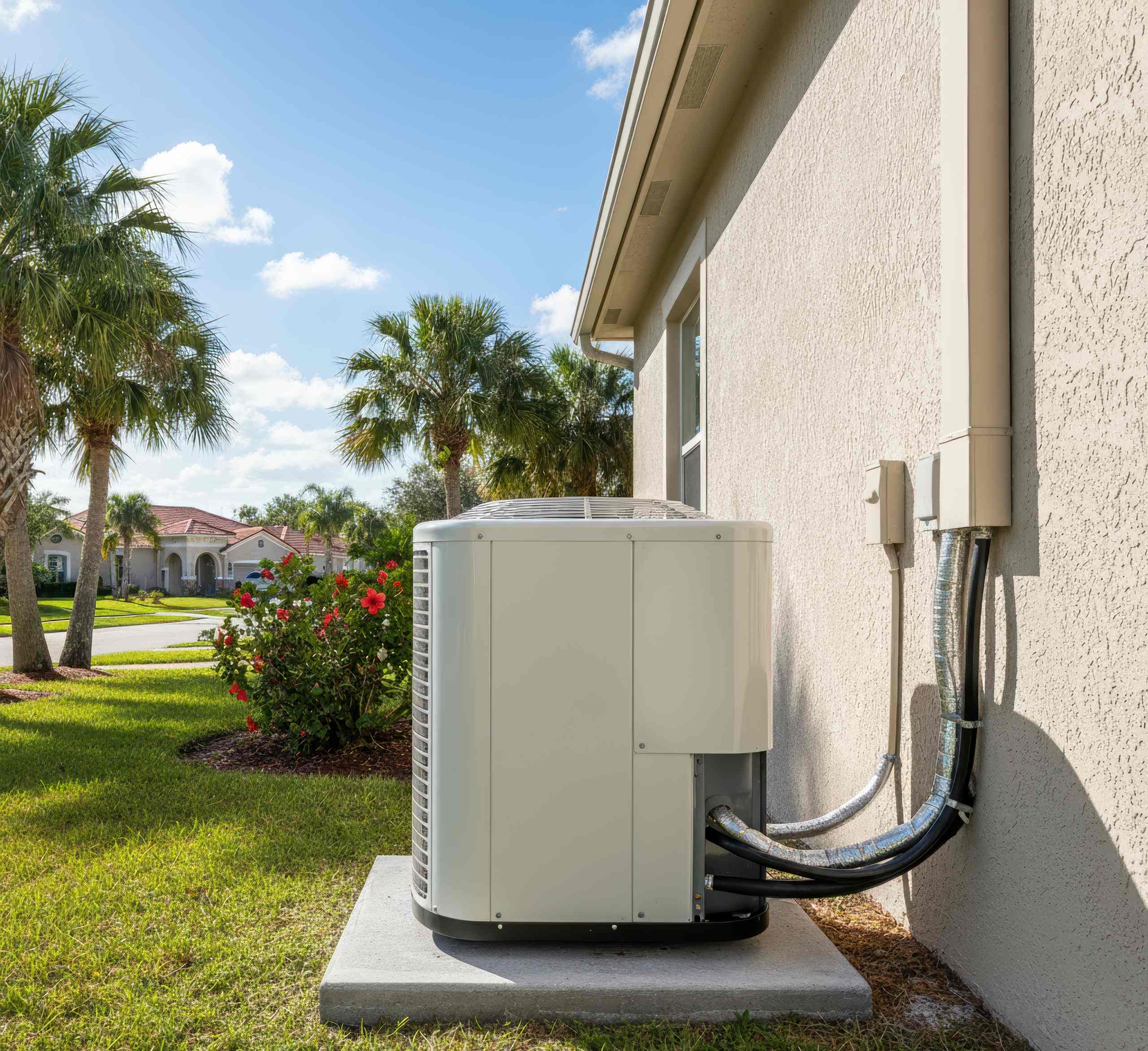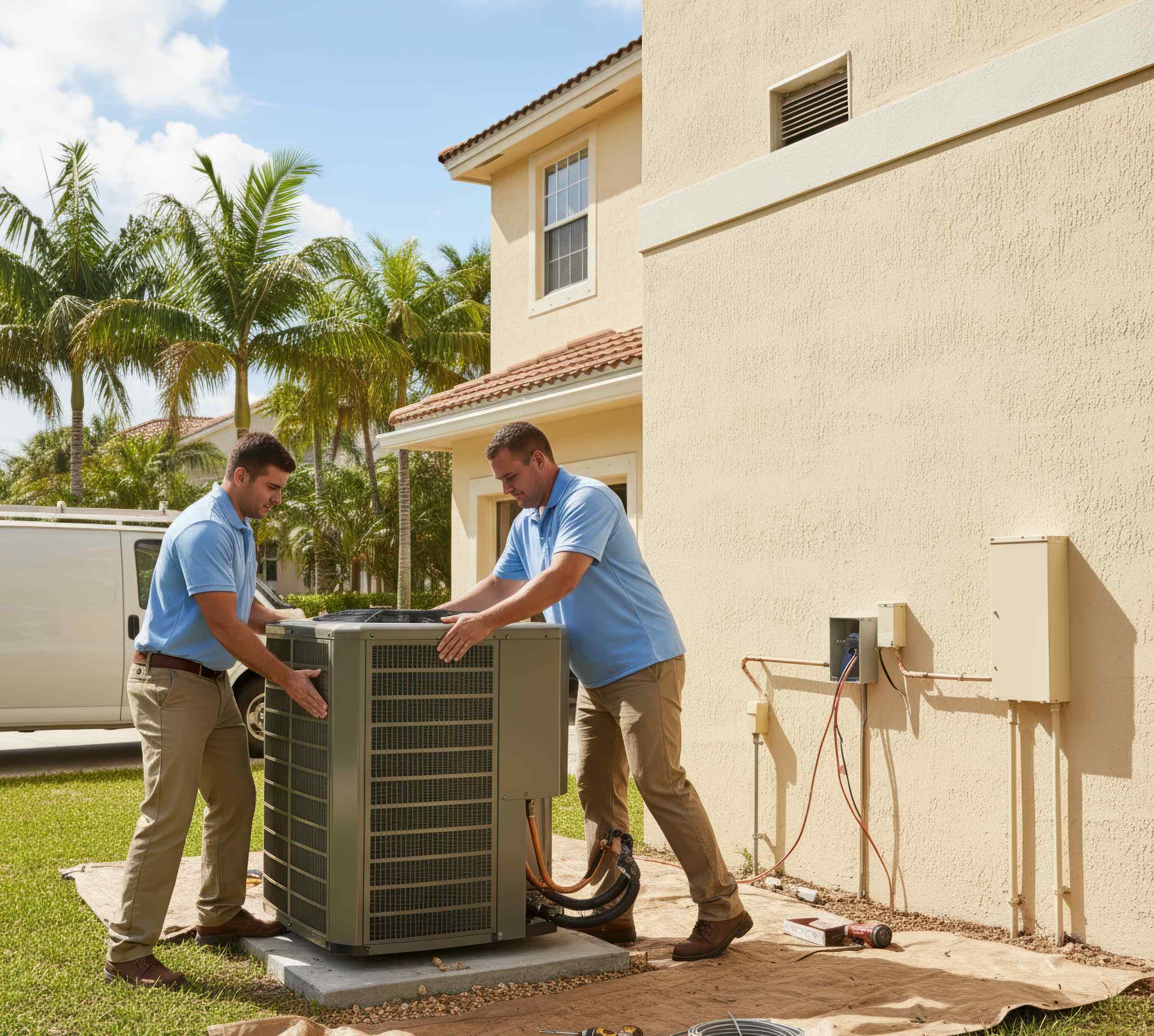A frozen AC is one of the most alarming sights in the home but not necessarily one of the most serious.
Seeing ice forming on the unit when the temperature is 80F outside understandably triggers panic for many Florida homeowners — but the answer is usually neither too far away nor hard to fix.
It may sound counter-intuitive but AC units are most likely to ice over when they’re working their hardest — which is when the temperatures are highest. This common AC problem needs troubleshooting, so here’s what you need to know about a frozen air conditioning system and what you can do about it…
Why is your AC frozen?
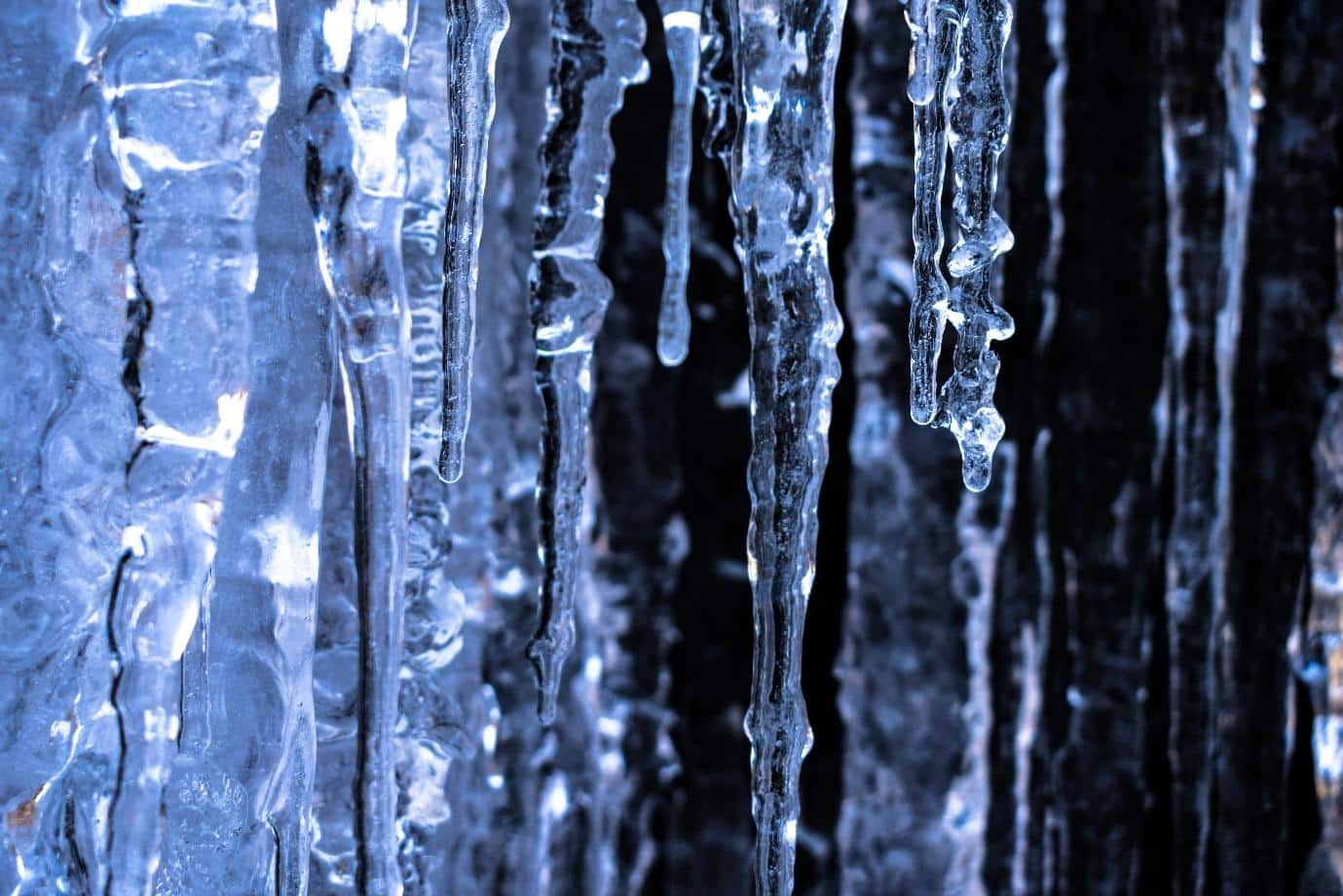
When an air conditioner is running, water collects on its evaporator coils, which is supposed to drip off and dry. If the water collects on the cold coils for too long and doesn’t drip off, it may turn into ice.
An AC system generally becomes frozen in a Florida home due to one of three or four main reasons: the refrigerant is low, the airflow through the system is insufficient, one or more of the system components has broken or the water flow is blocked.
The other common reason in cooler parts of the country can be very low outdoor temperatures that cause a buildup of ice on the outdoor unit but this is not an issue in Florida.
Let’s take a look at the main reasons in more detail:
STAY COOL ALL YEAR ROUND WITH ONE WAY AIR…
The team at One Way Air installs, services, and repairs all types of air conditioning systems in Southwest Florida. Get in touch with us here for a quote or call 239-233-4356 in emergencies.
Insufficient or blocked airflow
An AC system is designed to work with a specific balance of airflow and pressure. Good airflow is required to prevent moisture in the air from settling on the coils and freezing. The right amount of water must collect on the coils and the right amount of air must pass over it or problems can occur.
When airflow is blocked by a dirty filter or clogged coils, it prevents the system from removing warm air from the home effectively, leading to frozen condensation on the coils and frost or ice forming.
Another potential cause of poor airflow is clogged or leaky ductwork. This may require duct cleaning and sealing by a professional.
Fortunately, however, many airflow problems are relatively easily fixed (see below).
Low refrigerant levels in your AC system
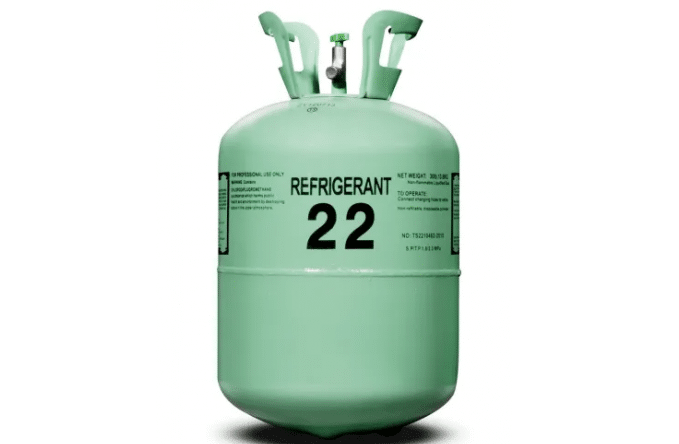
Your AC system uses freon or R-22 refrigerant gas as an integral part of the air-cooling process as air travels between the compressor, condenser and evaporator. It is a unique chemical that is highly sensitive to pressure variations in AC systems.
Usually, the AC is a closed system but if there is a refrigerant leak or lines get blocked and a lack of refrigerant flows through the system, the pressure balance may be off and too low for the gas to reach all necessary parts of the system.
If refrigerant takes too long to pass through the system’s cooling process, it will be too cold once it reaches the evaporator coils — and it may freeze because the coils are extra cold.
Leaking refrigerant can also harm one’s health if inhaled, so this is an issue that needs urgent attention. Unless you fix the underlying refrigerant leak, any solution is likely to be short-lived.
Broken Fan
Broken AC components such as evaporator fans and other moving parts may also cause a frozen AC.
All parts of the AC need to work together to deliver an efficient pressure-based cooling system. AC fan motors need to be serviced to consistently perform well and a fan that is spinning too slowly or not at all, for example, will require AC repairs rather than just a clean or tune-up. Otherwise, ice can form in the system.
Blocked Water Flow
Your AC may also become frozen due to the blocked flow of water, though this cause is rarer.
While it’s running normally, a central AC system produces water from the exterior condenser unit (in window units, water is channeled into a drain pan). If this gets blocked, backed-up water can flow into the unit, leading to ice on the evaporator coil.
A properly installed and maintained AC system should result in an ideal humidity level within the 40-60 range, which will feel relatively comfortable for most residents in SWFL.
Ultimately, however, poor ventilation, coupled with a poorly maintained or sized air conditioner and activities such as air-drying clothes indoors can result in uncomfortably high humidity in Florida homes.
How to tell if your AC is frozen
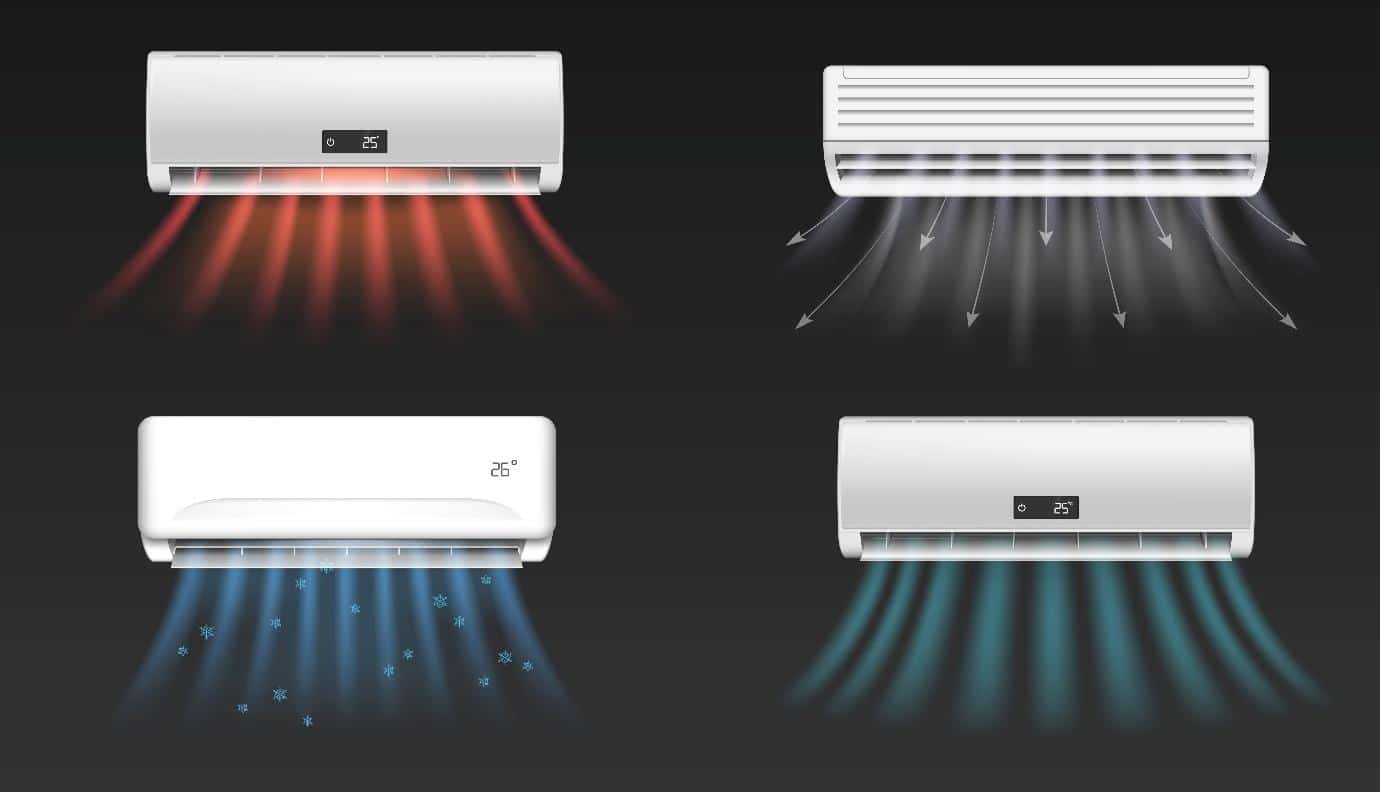
A frozen AC is not always as obvious as a block of ice or icicles hanging from the unit. Problems may require a little closer investigation if you start seeing ice crystals form on any part of the system.
With the exterior condenser unit, ice may be visible through the grate and, in the worst cases, may be so extensive that it pushes through the grate.
Ice most commonly forms on the evaporator coil, which is usually in the air handler in your interior unit. Ice can also form in other parts of an AC system, especially after a refrigerant leak when ice-cold fluid may pour into the section of the unit below the evaporator coils.
Apart from visible ice forming, another sign of a frozen AC unit is a lack of cool air. Check the temperature of the air coming out of your indoor supply vents/registers. If the air feels warm, your AC may have ice somewhere in the system — most likely on the evaporator coils.
If you hear a hissing sound coming from your air conditioning, it may also point to ice being the culprit.
The reduced airflow can also mean that your home is less efficient at cooling, which increases energy usage and bills. So, unexplained higher electricity bills should be investigated by an HVAC professional. Remember, cooling the home typically accounts for up to 61 percent of the total energy bills for Florida homeowners and an inefficient system can guzzle even more energy.
Just because you don’t see visible ice in your AC system doesn’t necessarily mean that you’re free of frost or ice problems — they may be just beginning and an experienced HVAC technician can often pre-empt such problems with regular maintenance visits.
Will a frozen AC fix itself?
With frozen AC systems, it’s best in nearly every case to seek professional assistance before the situation worsens and more expensive repairs (or a replacement) are needed.
For instance, if the evaporator coils remain frozen for too long, they may crack or break.
Some problems may correct themselves after a little while. Simply cleaning the air filters may also work. Most homeowners, however, have limited knowledge of the workings of a central AC system and will feel more comfortable leaving troubleshooting, AC maintenance and certainly any repairs to an experienced HVAC professional.
Leaving an AC system frozen in the hope that it will fix itself can lead to damaged parts and expensive repairs that are avoidable if you just seek the right assistance at the time.
Generally speaking, when AC troubleshooting, the faster you catch any underlying issues, such as poor airflow, dirty filters, low refrigerant or a broken component, the less costly the AC repairs are.
How should you fix a frozen AC?
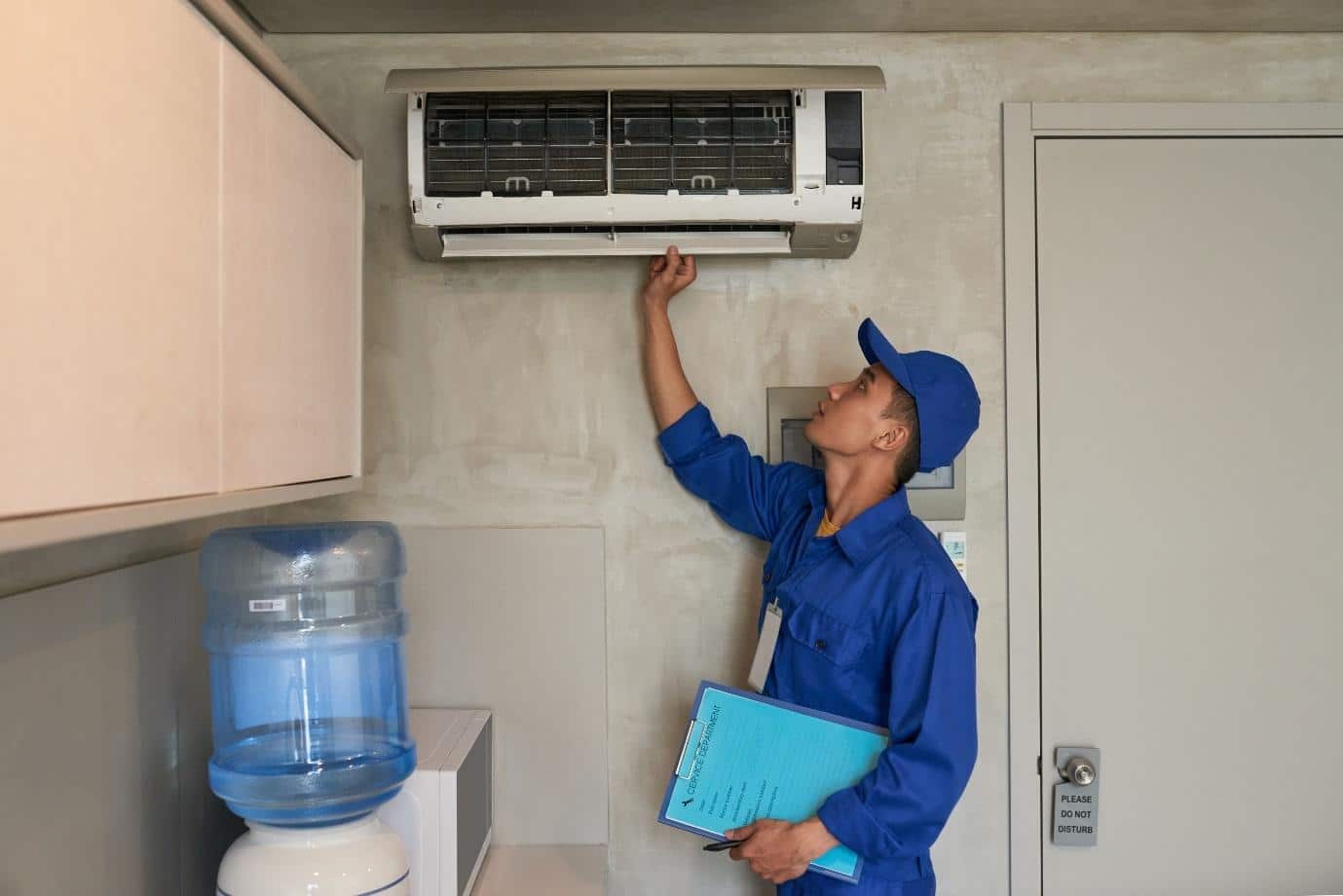
The quick answer? Call your HVAC professional.
If you’re in the Fort Myers area of SW Florida, schedule a visit from a licensed professional at One Way Air at 239-233-4356 to get your frozen AC up and running again.
A licensed professional will usually be able to identify the underlying cause of a frozen AC relatively quickly with a physical inspection and maybe a test or two.
If you’d like to attempt to troubleshoot the issue yourself before calling a professional, follow these basic steps:
Turn off your AC and let the ice thaw
When your air conditioner is on, it pumps freon through the evaporator coils, keeping them cold and preventing any ice from melting. Because ice is hard, it can cause havoc to parts within the system, so switching off the power prevents further problems.
The first step, then, is to turn your AC off. The ice will probably thaw quite quickly because of our Florida climate but in cooler parts of the country, it can take up to 24 hours. Wait until all the ice has thawed naturally rather than attempting to chip it off with a knife, which can damage components of your AC system:
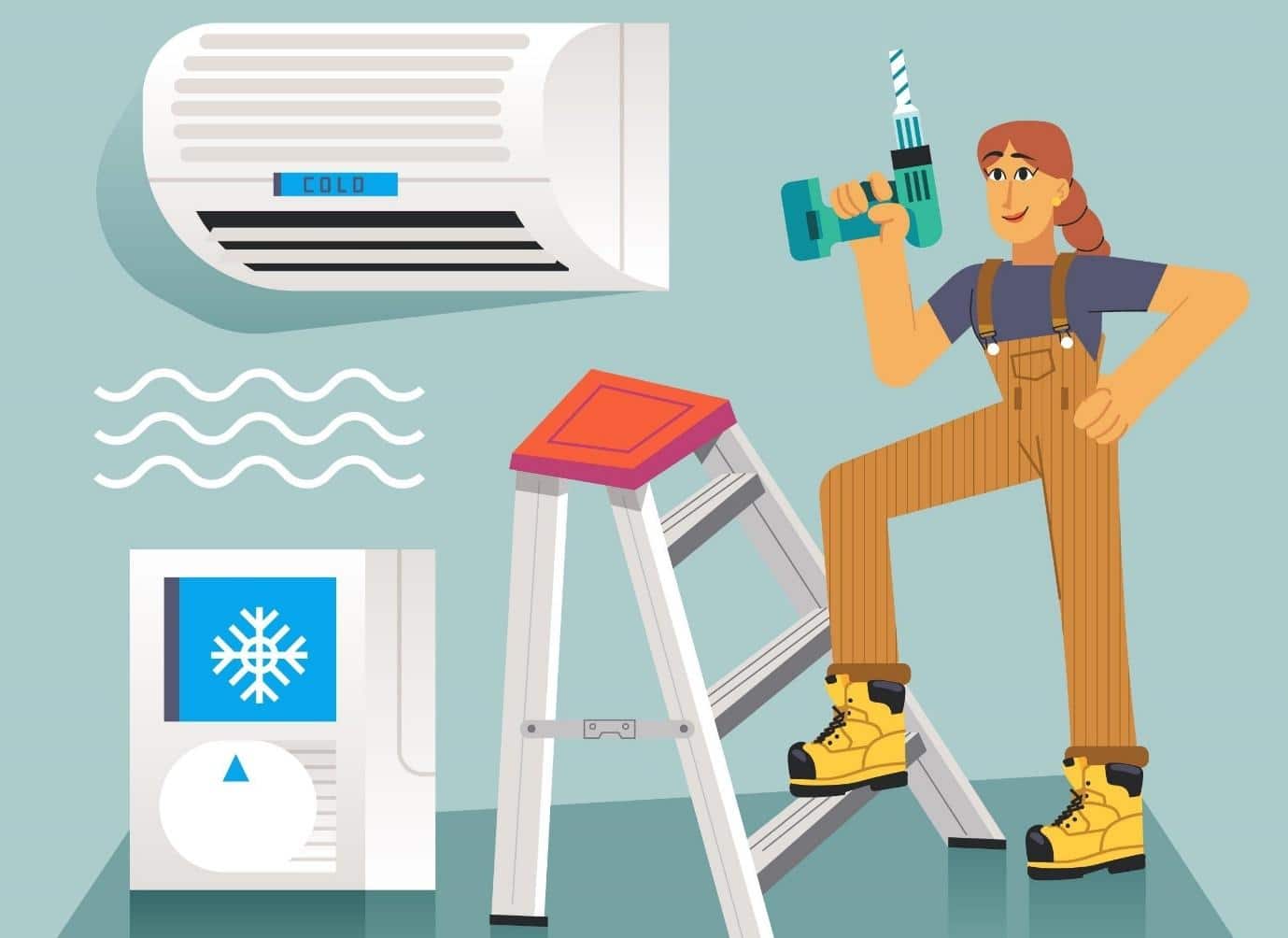
You can speed up the process of thawing your unit and drying the coils by switching to your system’s “fan-only” setting. Don’t use the AUTO setting as this will turn the fan on and off in cycles. Switching the fan on will force warm air to be blown over the frozen coils— which will speed up the defrosting process.
Observe the fan during the early stages of this process. If there are any airflow problems or condensation forms while the cool setting is off, make a note to tell your HVAC professional.
Sometimes, the fan won’t switch on or only blows very lightly because the fan motor has broken or needs repairing. This is a common reason for a frozen AC and you’ll need to call a professional to fix or replace it.
Check the air filters
If the fan is blowing normally, the next troubleshooting step is to wait until the ice has thawed and then check your AC’s air filters.
Dirty filters cause a wide variety of AC problems, such as frozen AC coils from the reduced airflow, poor air quality, ineffective or inefficient cooling (warmer homes and higher bills) and more.
In central AC systems, the air filter is usually located between the return duct and the air handler (a large metal box that houses the fan and its motor). The filter should look clean to the naked eye. If it is covered in dust, your unit’s airflow may be impacted, causing it to freeze up.
Filters need cleaning or replacing regularly. Some homeowners do this simple task themselves but most leave it to a professional during a full maintenance tune-up.
Problems may occur because, ideally, filters are changed at least every few months — more if you have pets or allergies and are concerned by indoor air quality. However, most Florida homeowners don’t schedule more than two or three HVAC maintenance visits per year. So, it might be best to learn how to clean and replace AC filters yourself.
After cleaning or changing the air filter, turn the AC back on and observe it over the next few days. If the system freezes up again, the air filters are not the cause of the problem.
You haven’t wasted your time though: the US Department of Energy reports that “replacing a dirty, clogged filter with a clean one can lower your air conditioner’s energy consumption by 5% to 15%.”
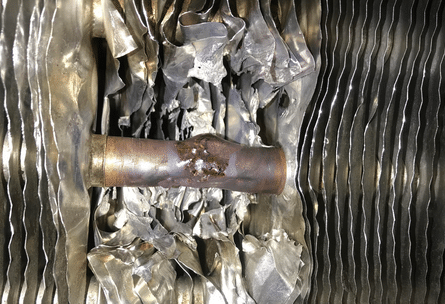
Inspect the AC coils
Your AC system contains two types of coils: evaporator coils, which remove heat from the indoor air and condenser coils, which release the heat absorbed from the home.
If your AC is frozen, you can inspect these coils before calling your HVAC professional. Even if the air filters are clean and working, some dust, dirt, mold and even hair or pet dander can make it through to the AC coils over time, causing layers of grime to form if they are not maintained well.
To check the evaporator coils, make sure the unit is turned off. They are generally located in the indoor air handling unit near the blower motor. If they appear dirty or clogged, you may have your culprit. You can clean AC coils yourself with a soft brush and commercial coil cleaner but most homeowners get it done as a part of regular AC tune-up.
The condenser coils are in the outside AC unit and if these develop a freezing problem, visible ice may appear through the fins.
Remember, beyond the basic steps outlined above, it’s best to leave any repairs to a professional.
Refrigerant is safe for use when an AC is professionally installed and maintained. However, handling it should not be attempted by anyone but an HVAC professional, who will also have the correct equipment to measure the pressure and refrigerant level inside the system.
How much does it cost to fix a frozen AC unit in Florida?
If you’re replacing a dirty air filter yourself and that improves the airflow, you can fix a frozen AC for as little as $30-40.
If you decide to call an HVAC professional for troubleshooting and a tune-up, you’ll likely be charged $150-$250 — but more if it takes longer than an hour or so and requires repairs.
Is a frozen air conditioner dangerous?
A frozen air conditioner usually looks worse than it is. The health risks are low (unless refrigerant is leaking into the air) and the main risk to property is from water damage as the ice melts.
The other main danger for homeowners is ice in the system leading to more serious problems and parts in the unit wearing out faster than they otherwise would.
How to prevent a frozen AC in Florida
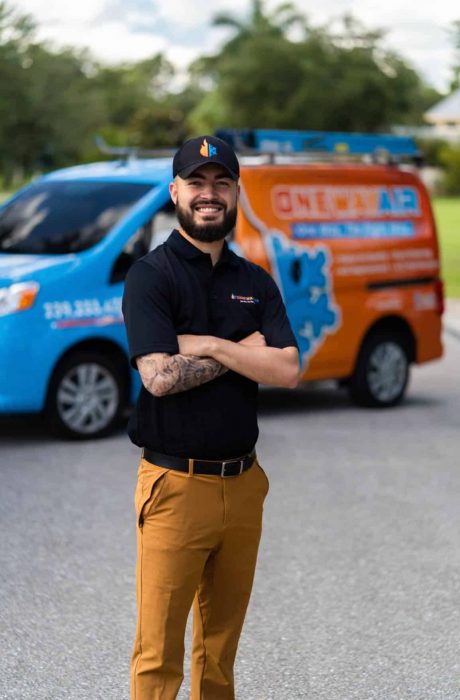
Most professionally installed, well-maintained, modern AC systems run like workhorses.
The best way to prevent a frozen AC in Florida is to schedule regular AC maintenance. A tune-up usually includes at least the following steps:
- Comprehensive cleaning of the condenser coils and air filter
- Evaluation of the coolant level for optimal performance
- Lubrication of all moving parts to reduce wear and tear on components
- Calibration of the thermostat
- Inspection of the ductwork to ensure no leaks
- Inspection of all the electrical connections
- Blower motor inspection to ensure optimal performance
Remember, a frozen AC system is most likely in the summer months when your AC is working overtime. Spring, fall and winter temperatures and humidity are usually less demanding on AC systems in Florida. When you get your tune-ups done, technicians can catch problems before they turn to ice!
If you have a freezing problem in your central AC right now and closer investigation is required, a licensed professional will perform the following steps:
- Checking refrigerant levels
- Checking for any refrigerant leaks with a detector
- Dealing with any leaked refrigerant responsibly (it’s illegal to release it into the atmosphere)
- Checking and sealing ductwork
- Measuring airflow through the evaporator coil
- Checking the electronics
- Ensuring that the heating and cooling systems cannot operate simultaneously
- Tightening electrical connections and applying a non-conductive coating if necessary
- Lubricating all key system components
- Checking the thermostat
If you’re in Fort Myers or the surrounding areas of SWFL and have a problem with a frozen AC system, call us at 239-233-4356 to arrange a full inspection and fix.

